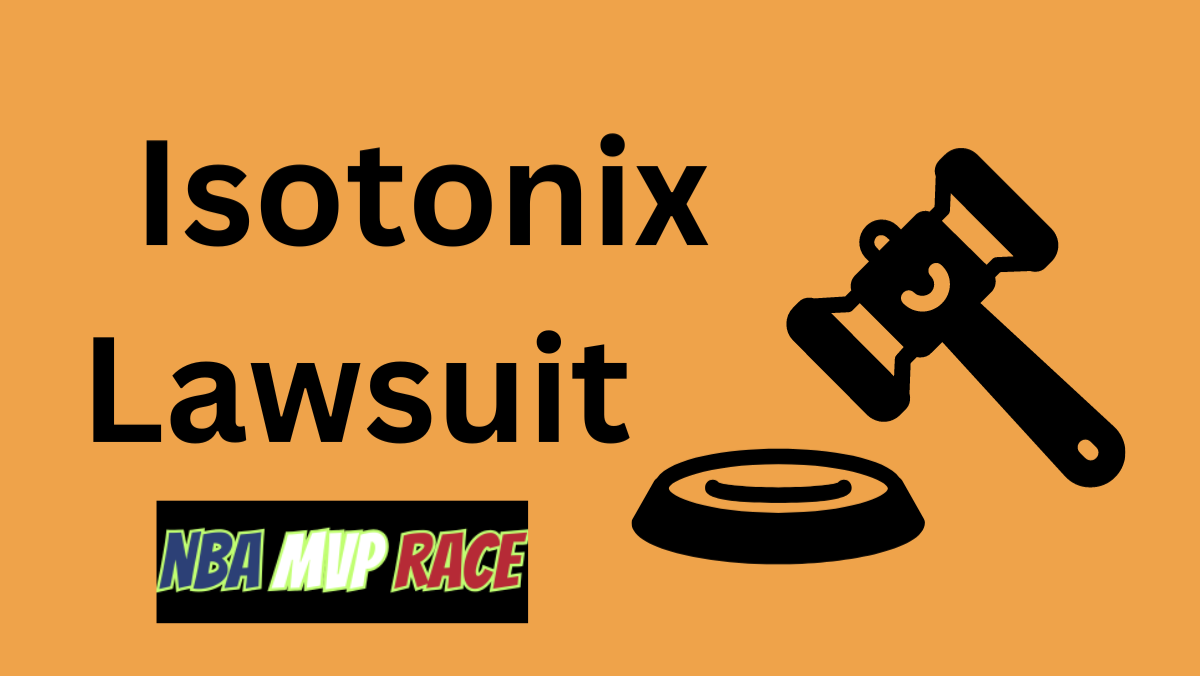Introduction
Isotonix lawsuit Isotonix, a brand of nutritional supplements, has been at the center of legal scrutiny in recent years, raising concerns about its business practices, product claims, and regulatory compliance. Owned by Market America, a multi-level marketing (MLM) company, Isotonix has been marketed as a premium supplement brand offering superior nutrient absorption. However, like many MLM-associated brands, Isotonix has faced allegations regarding misleading advertising, questionable health claims, and potential violations of consumer protection laws.
This article provides an in-depth examination of the lawsuit surrounding Isotonix, shedding light on the legal issues involved, the impact on consumers and distributors, and what this controversy means for the broader health supplement industry. By exploring these key aspects, we aim to provide clarity on the Isotonix legal battle and its implications.
Background on Isotonix and Market America
Isotonix is a dietary supplement brand that claims to provide superior absorption of vitamins and minerals through its isotonic delivery system. The brand is owned by Market America, a well-known MLM company founded in 1992 by JR Ridinger. Market America operates on a direct-sales model, allowing independent distributors to market and sell Isotonix products while earning commissions from their downline sales. The company promotes its products as scientifically advanced, with the promise of enhancing overall health and well-being.
Despite its popularity, Market America has been a subject of controversy over the years due to its business model, which critics argue closely resembles a pyramid scheme. MLM structures often face legal scrutiny due to their reliance on recruitment-based revenue rather than direct product sales. Furthermore, the health supplement industry is highly regulated by the FDA and FTC, requiring companies to substantiate their claims with scientific evidence. Market America’s legal troubles have often stemmed from allegations that its distributors and marketing materials make exaggerated or unverified claims about Isotonix products.
The Lawsuit Against Isotonix
The legal battle involving Isotonix centers around allegations of false advertising, misleading health claims, and deceptive marketing strategies. Plaintiffs in the lawsuit argue that Market America and its distributors have misrepresented the effectiveness of Isotonix products, making claims that lack scientific backing. Some of these claims include enhanced nutrient absorption, improved immune function, and prevention of certain health conditions, all of which fall under strict regulatory oversight.
The lawsuit has also scrutinized the MLM structure of Market America, raising concerns that the company prioritizes recruitment over actual product sales. In many MLM-related lawsuits, courts have examined whether distributors earn more from recruitment commissions than from genuine retail sales, which could classify the business as an illegal pyramid scheme. If proven, this could have significant legal consequences for Market America and its affiliated brands, including Isotonix.
As the lawsuit progresses, evidence is being gathered to determine whether Market America violated consumer protection laws. Regulatory agencies, such as the FTC, have historically taken action against MLM companies that fail to provide clear income disclosures or that mislead consumers about potential earnings. This lawsuit may set a precedent for how supplement-based MLM companies operate in the future.
Legal and Regulatory Issues
The dietary supplement industry is subject to strict regulations by both the U.S. Food and Drug Administration (FDA) and the Federal Trade Commission (FTC). These agencies ensure that companies do not make unsubstantiated health claims and that their marketing practices comply with federal laws. One of the major legal concerns surrounding Isotonix is whether its advertised health benefits are backed by scientific research.
Under FDA guidelines, supplement companies cannot claim to treat, cure, or prevent diseases unless they provide substantial scientific evidence. Many lawsuits against dietary supplement brands arise when companies use misleading language that implies medical benefits without clinical trials to support them. If Isotonix has indeed made such claims, it could be in violation of these regulations.
Additionally, MLM businesses like Market America must adhere to FTC guidelines that prohibit deceptive income claims. Many MLM distributors often exaggerate earning potential, leading recruits to believe they can achieve financial freedom through product sales. However, statistics show that the majority of MLM participants earn little to no profit, with only a small percentage achieving substantial financial success. The lawsuit against Isotonix could potentially highlight these issues and push for stricter enforcement of transparency laws.
Impact on Consumers and Distributors
The ongoing lawsuit has significant implications for both consumers and independent distributors of Isotonix products. For consumers, the primary concern is whether they have been misled into purchasing supplements that do not deliver the promised health benefits. If the lawsuit results in a ruling against Market America, affected consumers may be eligible for compensation or refunds for their purchases.
For distributors, the lawsuit raises questions about the legitimacy of Market America’s business model and whether they were provided with accurate information regarding earning potential. Many distributors invest significant money into purchasing inventory and attending company events, only to find that their earnings do not match initial promises. If the court determines that Market America engaged in deceptive business practices, it could lead to a loss of distributor trust and potential financial repercussions for those involved in the MLM structure.
Company Response and Public Perception
In response to the lawsuit, Market America has defended its business practices and the integrity of its Isotonix products. The company maintains that its supplements are formulated based on scientific principles and that distributors are trained to comply with marketing regulations. However, critics argue that MLM companies often shift responsibility onto independent distributors, making it difficult to regulate misleading claims effectively.
Public perception of the lawsuit has been mixed. While loyal Isotonix customers and distributors continue to support the brand, skeptics and former distributors have spoken out about their negative experiences with Market America. Media coverage has further amplified the controversy, drawing attention to the broader issue of MLMs and their impact on consumer trust.
Lessons and Takeaways from the Case
The Isotonix lawsuit serves as a cautionary tale for both consumers and businesses in the health supplement industry. It underscores the importance of transparency in marketing claims, adherence to regulatory standards, and ethical business practices. Companies operating within the MLM framework must ensure that their sales strategies prioritize product value over recruitment incentives.
For consumers, this case highlights the need for due diligence when purchasing dietary supplements. Before investing in a health product, individuals should research scientific evidence, verify claims made by the company, and be wary of exaggerated health benefits. Regulatory agencies are likely to increase scrutiny on similar businesses in the future, reinforcing consumer protection measures.
Conclusion
The Isotonix lawsuit brings to light critical legal and ethical concerns within the MLM and dietary supplement industries. As the case unfolds, it could set a precedent for how such companies operate and market their products. Whether or not Market America is found guilty of deceptive practices, this lawsuit serves as a reminder for businesses to prioritize integrity and transparency in their operations. Consumers and distributors should remain vigilant, making informed decisions based on verifiable information rather than marketing hype.
Also Read: shortlinkstop.online




